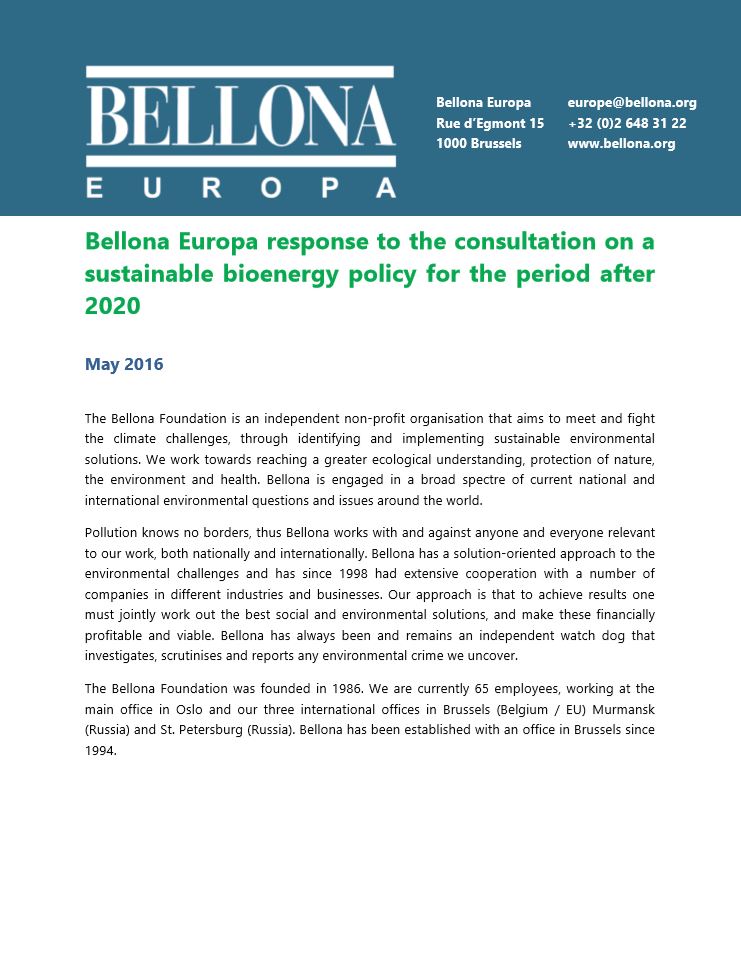
Eliminating Russia’s Nuclear Legacy
Problems and prospects in the context of the military conflict (2022–2025) The Soviet nuclear legacy refers the problems associated with accumulat...
Publication

Publisher: Bellona Europa
Publication
While Bellona’s response addresses the need to learn from past bioenergy mistakes, it focusses on the need to look to truly innovative sources for bioenergy, in particular to the oceans and seaweed.
While micro algae have benefited from more attention and research, the biofuel potential of seaweed is not yet as well understood, but may be significant. With their high water content of 85-90% seaweeds are particularly suitable for established wet fuel conversion methods such as anaerobic digestion (AD) and fermentation. (Hydrothermal) gasification and/or a mix of pathways, may further improve yields. The high carbohydrate content renders seaweeds highly suitable for bioethanol and biobutanol production, where the sugars are fermented. Meanwhile, the low lignin content eliminates many of the challenges currently faced by wood-based bioethanol producers.
Bellona calls on the Commission to further promote sustainable, marine bioenergy for heat and power and biofuels from, to dedicate resources to better understand the environmental risks of industrial scale seaweed production and to shed light on the difficulties in attaining necessary emission reduction targets and carbon removal without sustainable bioenergy.
Background for the consultation
EU Member States have agreed on a new policy framework for climate and energy, including EU‑wide targets for the period between 2020 and 2030. The targets include reducing the Union’s greenhouse gas (GHG) emissions by 40 % relative to emissions in 2005 and ensuring that at least 27 % of the EU’s energy comes from renewable sources. They should help to make the EU’s energy system more competitive, secure and sustainable, and help it meet its long‑term (2050) GHG reductions target.
In January 2014, in its Communication on A policy framework for climate and energy in the period from 2020 to 2030, the Commission stated that ‘[a]n improved biomass policy will also be necessary to maximise the resource-efficient use of biomass in order to deliver robust and verifiable greenhouse gas savings and to allow for fair competition between the various uses of biomass resources in the construction sector, paper and pulp industries and biochemical and energy production. This should also encompass the sustainable use of land, the sustainable management of forests in line with the EU’s forest strategy and address indirect land-use effects as with biofuels’.
In 2015, in its Energy Union strategy, the Commission announced that it would come forward with an updated bioenergy sustainability policy, as part of a renewable energy package for the period after 2020.